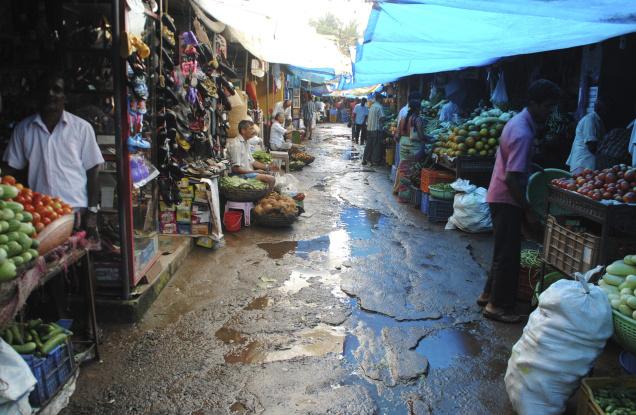MOODBIDRI , August 24, 201
Dry and wet waste segregated and collected at source — houses and shops
Moodbidri, a town of about 30,000 people and home to 15th century Thousand-Pillar Jain Basadi, has added new feather to its cap: it is probably the only town in the State which is garbage-bin free. It is also a model to the much-talked about and least implemented segregation of solid waste at the point of generation — houses.
Achieved painstakingly by the local civic body through persuasion, imposition of fine, and close monitoring despite large number of posts in the civic body lying vacant, the scheme now ensures total participation of every resident.
Maria Crasta of Licky Compound, a residential area in the town, said that a vehicle of the Moodbidri Town Municipality picked up the dry and wet waste separately for six days a week except on Sundays. She has no problem in parting with Rs. 40 a month. “They (those who come to collect trash) give us due respect,” she said.
Ms. Crasta said that the waste collectors carried dry and wet waste separately without mixing them. This is contrary to experience of people in pockets of Mangalore where collectors mix garbage even if households segregate.
Clean town
Ashraf A.S., a fruit and vegetable shopkeeper at the bus stand, said that the waste collectors arrived at the bus stand between 7.30 a.m. and 8 a.m. “I keep plastic ropes, packing materials separately and fruit waste separately.” He pays Rs. 100 a month.
A.L. Vas, a general merchant at the main market since 1976, said: “It is for the first time I am seeing a clean Moodbidri without plastic bags and garbage dumped on the roadside and in the market. A year ago the bus stand had garbage here and there.” He and many residents appreciate the chief officer of the municipality Rayappa for taking personal interest in making the town clean.
Mr. Rayappa attributed the success of segregating waste at source to sustained awareness campaign, cooperation from people and imposing fine on those who did not obey. For example, the municipality collected Rs. 8,450 as fine from April 1, 2013 to August 22 from eight people for not segregating waste at source.
Of the waste collected by four vehicles, entire wet waste is being converted into compost at Soan’s Farm, a private bio-park. The non-vegetarian waste – 5 kg to 10 kg a day – is dumped in a pit on a municipality land at Jyothi Nagar and covered with soil. Dry waste such as plastic material is sold to scrap dealers by those who collect it. The remaining dry waste like tubelights, glass pieces – about 5 tonnes a day – is transported to the sanitary land fill site of Mangalore City Corporation’s on the outskirts of Mangalore. “We pay Rs. 250 per tonne to the corporation,” Mr. Rayappa said.



